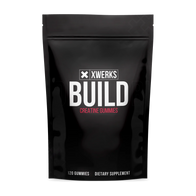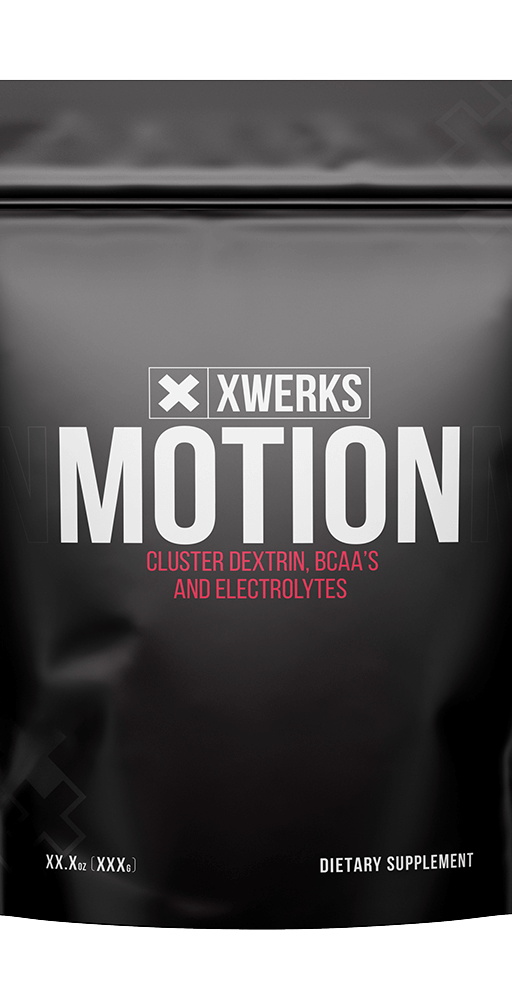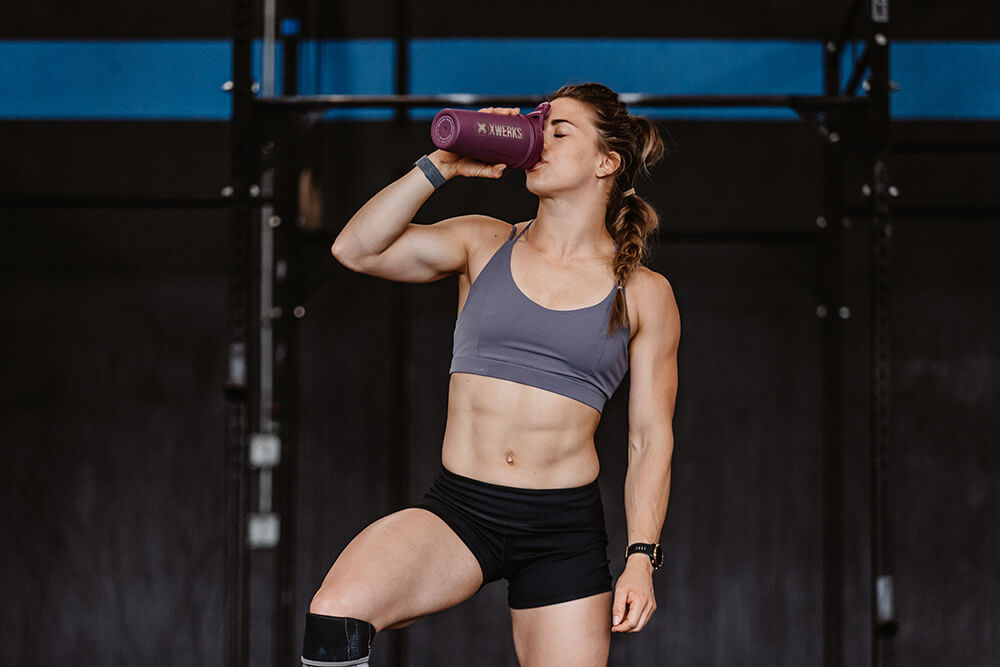Most of the time, when you think about workout supplements, you’re probably thinking about things that increase muscle mass and help you build a cut physique. Whey protein is a classic example. If you’re not seeing the gains you want, you may need to boost your protein consumption. That being said, protein doesn’t just increase muscle.
The truth is, it also has some useful properties that facilitate fat loss and help with maintaining lean muscle mass. Lets dig in to how whey protein might help you get ripped and get more dates:
What is Whey Protein?
Whey protein is a form of protein that is sourced from dairy. It is a by-product of the cheesemaking process. When you open a container of yogurt and see the liquid on top, you’re looking at whey. It contains the nine essential amino acids that your body requires to function properly but does not produce on its own.
Additionally, whey protein contains branched-chain amino acids, or BCAAs that are critical for building muscle, as well as offering a variety of health benefits. The amino acid profile of whey protein can’t be beat by any other supplement on the market.
For Increased Muscle Mass
Whey protein powder is one of the most common and most important supplements that anyone can take prior to or following a workout for improving strength and increasing muscle mass. Since it is a complete protein, containing the BCAAs that your muscles need, it is believed to be the best protein supplement on the market.
Whey protein will not only help you repair muscles that are broken down during your workout but will also help maintain the muscle you already have.
Therefore, it’s pretty clear why it’s such a common supplement- but there’s more to it than muscle gain for bodybuilders. When used properly, it can also help trim away excess fat.
For Fat Loss
A diet high in protein works in 2 ways to reduce body fat:
We’ll take a closer look at both of these below:
Boosts Metabolism
You should already be aware that you need to consume enough protein to increase your muscle mass. However, a high protein diet does more than just build muscle. The more muscle you gain, especially if you’re replacing body fat with muscle, the more calories your body will burn.
Muscle will burn more calories than fat will because you’re using your muscles as you move through your day. Even if you have a day where you’re not working out, the more muscle you have, the more calories you will burn.
In addition to this, you must think about the thermic effect of food. There are some foods that require more energy to break down than others. Protein takes a lot of energy to break down- which increases the number of calories you’re burning.
One study revealed that the thermic effect of the three macronutrients are as follows:
- Protein: 20 to 30%
- Fat: 5 to 10%
- Carbs: 0 to 3%
Therefore, it’s clear that protein is a great way to burn extra calories, which increases fat loss- but protein can do so much more to help you meet your goals.
Increases Satiety
One of the major factors involved with high protein diets and weight loss is how they affect your hunger and appetite. When you consume protein, you are increasing the following hormones, which are known to reduce appetite:
Protein also decreases the levels of ghrelin in your body- a hormone associated with the feeling of hunger. When combined, these work together to reduce your feelings of hunger, which keeps you from eating too much.
Protein also keeps you feeling full for longer. Along with these hormonal effects, you’re consuming fewer calories- which ultimately contributes to weight loss. Therefore, protein is ideal for facilitating weight loss, when used properly.
How to Use Whey Protein for Weight Loss
Whey protein can be used as a snack between meals, a workout supplement, or a meal replacement. The way that you use it will depend upon your goals- one will work better than the others. While you can use whey as a meal replacement, you want to make sure you’re still getting the other nutrients you need.
For example, if you’re looking for a quick and easy breakfast, consider a protein shake made with fruits and veggies. After all, you’re supplementing a healthy diet- not replacing one. Since whey is filling and easy to consume, it also makes a great in-between meals snack.
This will help keep you full between meals instead of grabbing a less healthy snack and will also keep you from being too hungry when you do eat a meal. This helps with portion control, because you’re not consuming as many calories.
While it may seem to ruin your appetite, it really just makes it easier for you to control your portions and avoid over-eating. There’s a variety of ways that you can use whey to increase your protein consumption while keeping you from being so hungry.
That being said, it’s also important that you know how much you should be consuming.
How Much Should You Use?
When it comes to weight loss, it’s important to limit your caloric intake. While it’s true that all calories are not equal, whey protein does contain a high amount. Whey can help you lose weight- but too much isn’t a good thing and it’s also a bad idea to avoid other critical nutrients.
If you’re using whey protein for weight loss, you should take 20 to 25 grams of protein per day. Of course, as mentioned, if you’re also trying to build muscle, this recommendation will be different. This works well for limiting your appetite while also preventing consuming too many calories.
As great as protein is for weight loss, it isn’t effective alone. You also need to be incorporating a workout plan as well.
Things to Look for in a Whey Protein Supplement
Once you’ve figured out your diet and workout, you can begin using a whey protein supplement. However, it is very important that you keep in mind that there are three types of whey, and they are not created equal - Whey protein concentrate, isolate & hydrolysate
There are some manufacturers that will blend several different types of protein together, which makes it hard to know how much protein and other macronutrients you are getting.
Conclusion
As you can see, protein is important for your overall health and wellness and while there are lots of great options out there, whey protein is the best one. If you are interested in leveling up your training and weight loss efforts, whey can be a great way to do it.
That being said, while it’s important to know how much protein powder to use, there’s much more to it. First of all, it’s important to keep in mind that more does not always mean better.
If your ultimate goal is weight loss, you’ll need to make sure that your macros are properly balanced. Therefore, you need to make sure you’re getting adequate amounts of fats and carbs as well. Protein powder should not be used as a crutch but as a tool.
Learn more about XWERKS Grow
References
“Benefits of Whey Protein Isolate: And Why It Is the “Whey” to Go.” IdealFit, 7 July 2016, www.idealfit.com/blog/whey-protein-isolate/.
“BRANCHED-CHAIN AMINO ACIDS (BCAA): Overview, Uses, Side Effects, Precautions, Interactions, Dosing and Reviews.” Www.webmd.com, www.webmd.com/vitamins/ai/ingredientmono-1005/branched-chain-amino-acids.
Gale, Michelle. “Satiety: How Does It Work?” Www.sugarnutritionresource.org, www.sugarnutritionresource.org/news-articles/satiety-how-does-it-work.
“Glucagon like Peptide 1 - an Overview | ScienceDirect Topics.” Sciencedirect.com, 2010, www.sciencedirect.com/topics/medicine-and-dentistry/glucagon-like-peptide-1. Accessed 10 Nov. 2019.
Little, T. J., et al. “Role of Cholecystokinin in Appetite Control and Body Weight Regulation.” Obesity Reviews, vol. 6, no. 4, Nov. 2005, pp. 297–306, 10.1111/j.1467-789x.2005.00212.x. Accessed 21 Dec. 2019.
M, Calcagno, et al. “The Thermic Effect of Food: A Review.” Journal of the American College of Nutrition, 1 Aug. 2019, pubmed.ncbi.nlm.nih.gov/31021710/.
Mayo Clinic Staff. “Whey Protein.” Mayo Clinic, 2017, www.mayoclinic.org/drugs-supplements-whey-protein/art-20363344.
“Metabolism: What It Is, How It Works and Disorders.” Cleveland Clinic, my.clevelandclinic.org/health/body/21893-metabolism.
“Peptide YY (PYY).” News-Medical.net, 16 May 2017, www.news-medical.net/health/Peptide-YY-(PYY).aspx.
“The 9 Essential Amino Acids and Why We Need Them.” The Amino Company, aminoco.com/blogs/amino-acids/the-9-essential-amino-acids-and-why-we-need-them/.
“What Is Whey Protein Concentrate? + Benefits and Uses.” Natural Force, naturalforce.com/blogs/nutrition/what-is-whey-protein-concentrate.
“What Is Whey Protein Hydrolysate.” Formula Sense, formulasense.com/ingredient-interpreter/what-is-whey-protein-hydrolysate.






















